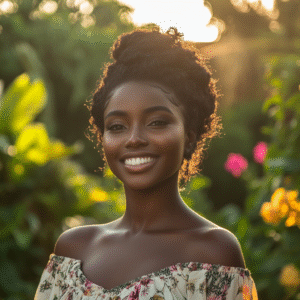Breaking the Cycle: Healing Colorism Through Unity
By BlaqKharma / November 10, 2025 / No Comments / Life
Being Black in America has always been layered. It is pride and pain, confidence and confusion, beauty and battle all atô once.ô Within that experience sits something that still cuts deep even in 2025:ô colorism.ô Most people think of it as an issue that only affects darker-skinned Black people.ô But colorism is not one-sided. It is a full spectrum of judgment, bias, andô insecurity.ô It shows up in different ways, but it wounds usô all.
I have lived on a side of colorism that is oftenô overlooked.ô It is the side where people claim you are not Blackô enough.ô Growing up, I was called ãlight bright,ã ãyellow,ã and even ãlow white.ã Those wordsô stuck.ô They made me feel like I had to constantly prove my Blackness to my ownô people.ô It is a strange place to live in, to be proud of your Black identity but questioned by your own community forô it.ô Over time, I realized this is just another form of the sameô disease.ô Colorism divides us from theô inside.
When we talk about colorism, we are really talking about psychological conditioning that started long before any of us wereô born.ô It is not just about shade or tone; it is about the ways racism trained us to see hierarchy where there should beô harmony.ô Somewhere along the line, we inherited false ideas about what looks more valuable, more worthy, moreô beautiful.ô Those ideas were never ours, but they still followô us.ô We end up repeating patterns that were meant to keep us separated from oneô another.
That is why the conversations around colorism often feel one-sided and repetitive.ô We talk about pain, but notô healing.ô We compare who has been hurt worse, instead of asking how we can stop hurting eachô other.ô I have seen how darker-skinned people can feel resentment from years of exclusion.ô I have also seen lighter-skinned people internalize guilt for privileges they never wanted.ô Neither side benefits from staying in those emotionalô trenches.ô We are still playing a game that was never designed for any of us toô win.
 By now, we should knowô better.ô We have access toô everything.ô We have history, education, technology, and platforms that our ancestors could neverô imagine.ô We can create our own media, our own businesses, and our own definitions ofô beauty.ô Yet colorism still appears in our comments, our dating choices, our casting decisions, and even in our casualô jokes.ô It is a quiet poison that we sip without realizingô it.ô We often do not see how we have been trained to view one shade of Black as softer, smarter, or more desirable thanô another.
By now, we should knowô better.ô We have access toô everything.ô We have history, education, technology, and platforms that our ancestors could neverô imagine.ô We can create our own media, our own businesses, and our own definitions ofô beauty.ô Yet colorism still appears in our comments, our dating choices, our casting decisions, and even in our casualô jokes.ô It is a quiet poison that we sip without realizingô it.ô We often do not see how we have been trained to view one shade of Black as softer, smarter, or more desirable thanô another.
I have come to believe that colorism will not be healed through debate orô comparison.ô It will only be healed through unity andô accountability.ô That means being honest about how we have contributed toô it.ô It means checking ourselves when we make jokes about someoneãs skinô tone.ô It means refusing to let the media tell us what Black beauty looksô like.ô It also means creating opportunities that reflect all sides of who we are, on screens, in boardrooms, in art, in schools, andô beyond.
Colorism does not have to be the story we passô down.ô We can stop romanticizing struggle and start normalizingô healing.ô Every generation deserves a little less of thisô weight.ô We need to stop arguing about who had itô worse.ô Instead, we can focus on how to build something betterô together.
I still think about those moments when people questioned myô Blackness.ô At one point, I used to defend myself withô anger.ô Now I see it differently. The problem was never me. The problem was the belief that skin tone could define our culture or the essence of ourô Blackness.ô That mindset was planted to divide us, but we do not have to keep wateringô it.
Blackness is not a shade. It is a shared experience, a rhythm, a language, a fight, and a beauty that exists in everyô tone.ô If we really want to fight colorism, we have to love ourselves and each other enough to stop letting it use us against oneô another.
We have already broken too many barriers to let something as shallow as shade keep usô apart.ô Unity is the cure. The more we build together, the less space colorism will have toô exist.ô It is not about being too Black or not Black enoughô anymore.ô It is about beingô whole.
